Blog Post
Firefighting Course: How to Help During and After a House Fire
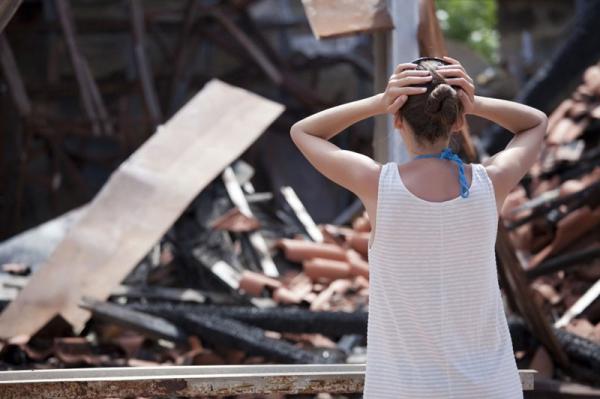
Your neighbour’s house fire can be a traumatic and overwhelming experience for both your neighbour and you. If you are looking for a firefighting course to equip you with the skills and knowledge to be able to proactively handle a house fire emergency, EMCARE has a firefighting course for you. We have also created a guide for assisting your neighbour during and after there has been a house fire.
EMCARE Firefighting Course:
House fires occur regularly in South Africa, and due to the numerous close-proximity residential areas, these fires can often spread out of control. Acting immediately and following safety protocols is essential to safely handle a house fire in your neighbourhood. The best way to prepare yourself for a house fire emergency is to enrol in a basic firefighting course.
EMCARE is a health and safety training facility that offers a range of firefighting courses that will provide you with the essential skills and knowledge to safely handle a fire. From a basic firefighting course to advanced firefighting courses, you can learn the level of firefighting skills you desire with EMCARE.
We have selected two EMCARE firefighting courses that will provide you with the necessary skills and knowledge to confidently face a household fire in your neighbourhood.
- Basic Fire Awareness Course This EMCARE firefighting course is aimed at preventing and handling a fire in the home or workplace. Taking confident actions when faced with a fire emergency is critical to ensuring your safety and the safety of those around you. The EMCARE Basic Fire Awareness Course will provide you with the critical confidence you need. This course takes half a day to complete and will provide you with the essential skills to help assist during a household fire in your neighbourhood.
- Basic Fire Fighting Course If you are looking to build on the Emcare Basic Fire Awareness Course, then you can enrol in the Basic Fire Fighting Course. You will learn additional firefighting techniques that you can apply in the case of an emergency fire in your neighbourhood. This course takes only one day to complete and will further your confidence in handling a fire emergency.
Every EMCARE firefighting course is available at all our training facilities across South Africa. This is to ensure that no matter what neighbourhood you live in, you can have access to a firefighting course that will equip you to handle either a fire in your own home or your neighbour’s house fire.
Each EMCARE firefighting course is facilitated by trained professionals. The EMCARE trainers are fully qualified and have years of experience with firefighting and firefighting course facilitating. EMCARE provides you with the best trainers so that you can feel confident about the quality and standard of your firefighting course.
Alongside an EMCARE firefighting course, you can also equip yourself with ways to assist your neighbours during and after a house fire with our guide.
How to Help During a House Fire:We have outlined four immediate steps you can take when your neighbour’s house is on fire.
1) Immediately Call For Help:
The moment you notice that your neighbour’s house is on fire, you must call 10111, which is the South African emergency response number. Although you have the training to handle a fire emergency from your EMCARE firefighting course, you still need to contact professional firefighters.
The next number to call is the South African Ambulance service on 10177. Having the ambulance already on their way or at the emergency site saves time and ensures there can be a quick response to fire-related injuries or shock.
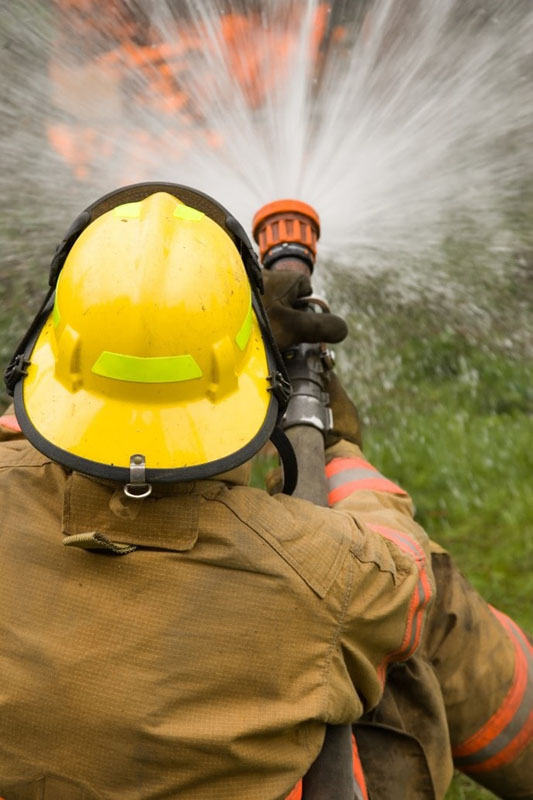
2) Do Not Put Yourself in Danger:
When faced with a house fire, you must never put yourself in danger. The EMCARE firefighting course will equip you to handle an emergency fire, but the main focus is to provide you with the skills and knowledge to keep yourself safe when faced with a fire.
You should never enter into a house that is on fire as this will be putting yourself at risk. You should never open any external doors or break any windows as this will flood more oxygen into the home and increase the fire intensity. You should either assist with putting out the fire or wait at a safe distance to help your neighbours after they have left their house.
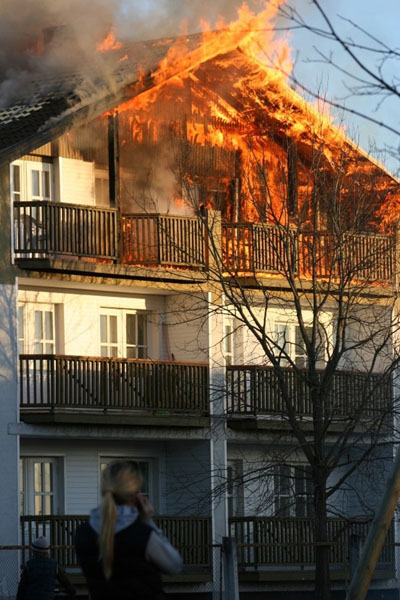
3) Alert Neighbours:
If you live in a residential area with homes that are close together, you need to alert your neighbours to the nearby risk of fire.
You can do this by either posting a message on your community WhatsApp group, phoning your surrounding neighbours if you have their numbers, or shouting to alert nearby people that there is an emergency.
You can also request your neighbours to donate their fire extinguishers or turn on their fire hoses and help with putting out the fire from a safe distance.
4) Help Put Out The Fire:
While you wait for the fire department to arrive, you can begin to assist with putting out the fire. The EMCARE firefighting course will provide you with the techniques on how to put out a fire. It is critical to use your skills and knowledge in a way that still ensures that you are out of danger.
Use your household fire extinguisher or firehose to put out any fires that have escaped outside of the house and are spreading to other homes. You can also use your hose pipe to drench the perimeter around the home to help reduce the fire’s spread.
How to Help After a House Fire:
Once the house fire is out, a whole new range of problems ignites for your neighbours. We have provided a guide on how to assist your neighbour after they have experienced a house fire.
Immediate Assistance:
These are the immediate steps you can take to provide your neighbour with meaningful assistance.
1) Provide Essentials:
House fire damage can range from a single room to the entire home being burnt down. Once a house fire has been extinguished, there will also be a waiting period for the home to be deemed safe to enter. Your neighbours may have lost all their essential items or be unable to access them.
Your neighbours will need essentials to get them through the next few hours after a house fire. We have listed some basic items you can provide to your neighbours.
- Clothing: Whether their clothes are destroyed, damaged, or merely smell like smoke, your neighbours will need clean clothes to put on after their house fire. Underwear, socks, and jerseys are common requests after a person has gone through a house fire.
- Toiletries: Another way to help with essentials is to provide your neighbours with toiletries. Items such as a toothbrush, toothpaste, soap, and deodorant can help immensely.
-
Meals or Groceries You can offer your neighbours a warm meal after the house fire has been extinguished. If your neighbours have gone to stay at a relative's or friend’s house, you can drop off groceries as a small way to help out your neighbours and those assisting them.

The damage a house fire can cause can be devastating, and your neighbours will need a place to rest and work through the trauma they have just experienced. If your neighbours have no relatives or friends in the area, you can offer them a place to sleep either for the night or until they can make other arrangements.
3) Offer Support:
You can be of assistance to your neighbours after they have experienced a house fire by offering them support in whichever way they need. Whether this means lending your phone so that your neighbour can call their insurance company, allowing them to use your WIFI, or driving them to a place to stay, any small act of support will be of great assistance.
4) Pet Assistance:
Pets often run away from house fires and a lost pet can be an added experience of stress and trauma for your neighbour who has gone through a house fire. You can help by heading up a search party for the missing pets while your neighbour deals with other critical matters.
After a house fire, a person will either rent a space or stay at a friend's or relative's house. Often, their temporary home is not able to accommodate their pets. You can offer to take in their pets and look after them until your neighbour can have them back.
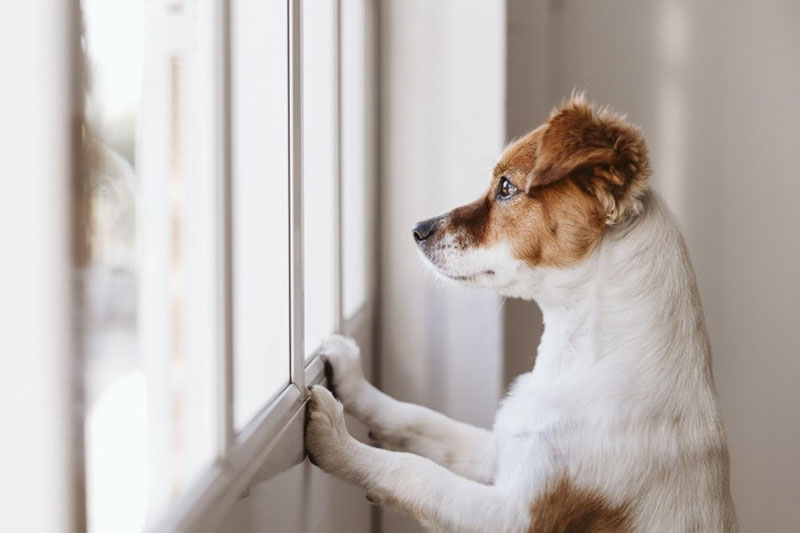
Long Term Assistance:
Once the first few days after the house fire has passed, your neighbour is going to need long-term assistance in various ways. We have outlined a few ways you can provide your neighbour with assistance.
1) Assist with the Clean-up:
Once your neighbour’s home has been deemed safe to enter, the house will need to be cleaned. Depending on the extent of the damage, this clean-up process can take up to a few weeks. You can help your neighbours by assisting with the clean-up or by hiring a skip for them to discard damaged items.
2) Raise Funds:
In certain cases, houses are not fully insured for fire damage. This can leave your neighbours with a damaged home, lost possessions, and limited funds to begin repairing and replacing their items.
You can assist your neighbours by raising funds for them. Whether this is through a community donation drive or creating an online fundraiser, any amount you can assist with will help your neighbours get back to normality faster.
3) Psychological Support:
A house fire is a traumatising, emotional, and devastating experience for a person to go through. Depending on the extent of the damage, your neighbour may have lost precious memories and possessions. Your neighbour will need psychological support after their house fire.
The psychological support you offer to your neighbour depends on your relationship with your neighbour. You can provide them with a safe space to come and talk to you if they ever need it, or you can provide them with the contact details of a professional psychologist.
4) Offer to Help with Errands:
Small acts of kindness can mean the world to your neighbour who has just gone through a house fire. Even when the fire is out and they can get access into their home, handling daily errands can be difficult for your neighbour. If you can assist with any errands, you can offer these to your neighbour.
There are numerous errands you can help your neighbour with that do not take time out of your day. When shopping for groceries, you can offer to pick up groceries for your neighbour at the same time. If your neighbour’s children attend the same school as your children, you can offer to do school drop-offs and collections.
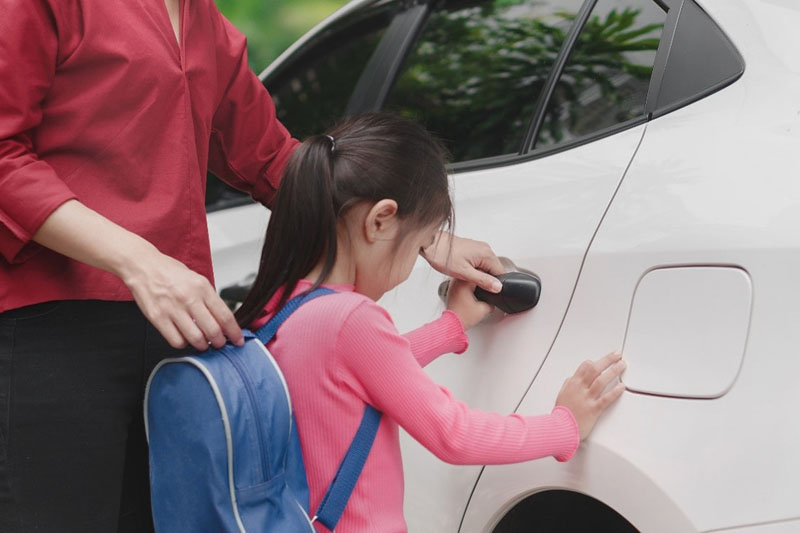
Gain the knowledge and skills from an EMCARE firefighting course to handle a house fire in your neighbourhood and follow our extra guidance on assisting your neighbour during and after the house fire.
GET IN TOUCH
There are a few ways to reach us below. Please feel free to contact us via phone, email or you can send us a message via the form provided and we will get back to you.




















